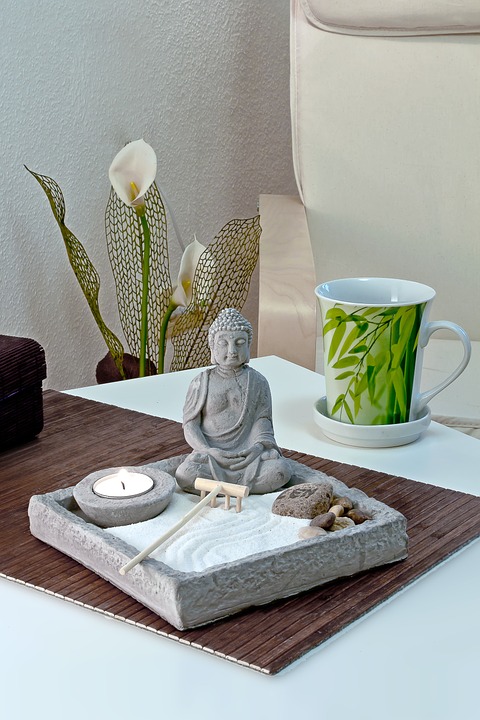
I’ve been reading about Feng Shui again lately. Probably because we moved last year and I’ve been spending more time thinking about my surroundings. Feng Shui is the ancient Chinese art of creating harmony in living spaces. Its literal translation means wind and water. It’s based on the principle that, like wind and water, you and your environment are two forces of nature, constantly interacting and influencing each other. When they’re in balance, chi or positive energy can flow and that, in turn, affects our health, wealth and happiness.
As simple as it sounds, the art of Feng Shui is surprisingly complex and doesn’t lend itself to a superficial approach. Feng Shui masters spend their entire lives studying the principles and helping others apply them. That said, there are some basic go-to rules we can utilize to bring harmony to our living spaces, and to our offices as well.
Here are some of the Feng Shui principles I introduced into my writing space years ago, ones I continue to utilize today.
* Simplify and declutter. Active chaos or temporary clutter (reference books or the visuals that pile up as we write) is the result of creativity in motion. But passive chaos or stagnant clutter – outdated papers or books not being used, old magazines and journals – needs to be eliminated.
* Your desk should be in your office’s commanding position. Ideally it should face the room’s entrance, but angled to the left or the right and not directly in line with the door. If that’s impossible, use a mirror to reflect the entrance door or, at the very least, hang a bell on your doorknob so you’ll hear someone approaching.
*Put the materials you use regularly within arm’s reach of your desk. If that’s impossible, gather whatever you need at the beginning of your writing session and have everything close.
* Avoid having an abstract painting on the wall in an area where you want to focus.
* Watch out for doors that stick. Feng Shui believes they can create sticky situations.
* Make sure your work area engages all five senses. This is critical for us as writers too. When you look up from your desk you should see something you love on the wall. Create a soundtrack for the book you’re writing. Add a scented oil diffuser to the shelf. Toss a throw rug with a beautiful texture onto the floor.
* Hang a crystal over your desk to stimulate the thinking chi and improve your work habits.
* Surround yourself with colors that personally resonate. The color blue activates the fifth chakra, or throat chakra, and can inspire creative writing. If that color appeals, put a few blue touches in your office. I’ve added red in my office to kick start my thinking. In fact, one of my favorite pictures is a painting from my aunt featuring red poppies against a deep blue background. I have half a dozen vibrant, creative images in my new office and they’re all framed in black. Black is grounding and helps with persistence.
* Keep a plant in your office and make sure it’s healthy.
* And finally, if you want things to change, relocate (or get rid of) 27 things in your working area. This is a powerful Feng Shui tool that can be used to sweep out the old and bring in the new.
